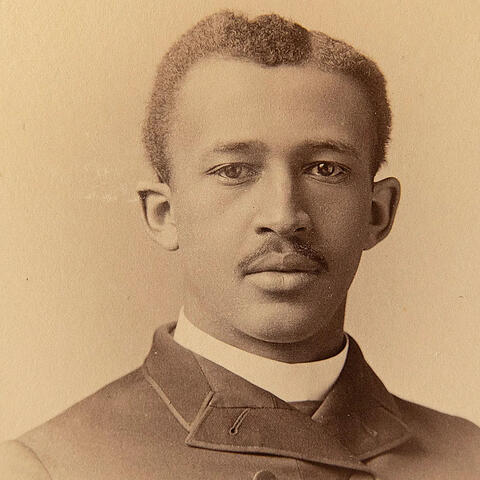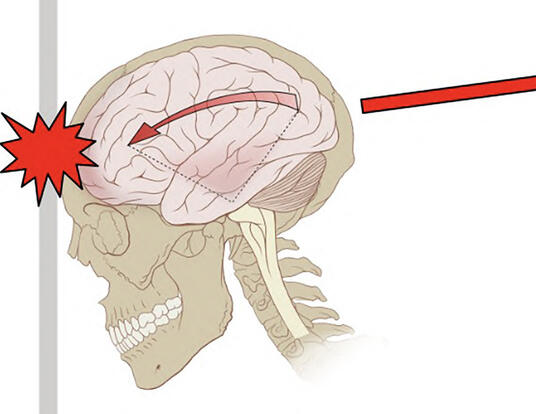Veritalk Goes Vegan
Nina Gheihman, a PhD candidate in sociology, explores food trends from “franken-meat” to “plant-based diets.”

When you think “vegan” you probably think of activists railing against wearing leather and chowing down on raw tofu - not entrepreneurs offering up the latest foodie trends. Nina Gheihman, a PhD candidate in sociology, explores food trends from “franken-meat” to “plant-based diets” – and why climate change means that we’ll all be eating more plants very soon, whether we like it or not.
Interview Highlights
"I think vegan is a little more clear [than the term "plant-based diet"] because the ideological foundations of a "plant-based diet" is a little bit mushy. But, actually, in my dissertation I argue that that's part of the appeal. In a way, it's created looser boundaries for the movement, so it's allowed more people to participate in it." - Nina Gheihman on the popularity of "plant-based diets" among non-vegans.
"Prior to World War II it was a novelty to have meat in general. For the most part they were eating like pretty plant-based. That change happened in part because of the post-war boom in the economy and the subsidies from the government that made it very cheap to eat meat." - Nina Gheihman on shifting diets in American history.
Full Transcript
Anna Fisher-Pinkert: From the Harvard Graduate School of Arts and Sciences, you’re listening to Veritalk. Your window into the minds of PhDs at Harvard University. I'm Anna Fisher-Pinkert.
Last week, we talked about food and diaspora with Nikhita Obeegadoo. Nikhita told us about the way in which immigrant foods can slowly but surely make their way into mainstream culture.
Nikhita Obeegadoo: Culture is always changing, culture is always evolving. There is something unrealistic in expecting food to just stay the way it is.
AFP: And, yeah, when I look around Harvard Square, where I work, I see restaurants that serve up dishes inspired by Vietnamese bon mi sandwiches, Greek souvlaki, and Korean bulgogi. But there’s also this other kind of restaurant that keeps cropping up in Cambridge. These are spots that serve up bowls full of kale and edamame and roasted beets. Or meatball sandwiches where the meatballs are actually made of pea protein. These are restaurants where there is no meat, and sometimes even no dairy, on the menu.
AFP: Can I get a Seoul Bowl? And can I get that with half kale, half brown rice and quinoa? And, I think that’s it.
AFP: Now, I’m not vegetarian or vegan, but I order from these places a lot. And, judging by the lines at lunchtime, so do a lot of other people. I wanted to understand why there were so many of these so-called “plant-based” restaurants opening up in my neighborhood. So, I asked Nina Gheihman.
Nina Gheihman: My name is Nina Gheihman and I'm a G6 in the Department of Sociology at Harvard. I'm a cultural sociologist, and so what we study is how culture is changing and who is involved in making those changes.
AFP: Nina actually became a vegan herself pretty recently. She’d been a vegetarian for about 10 years, but up until the last few years, she saw veganism as a little bit out there.
NG: I sort of could imagine being a vegetarian, but vegan just seemed seemed too extreme, and yet in the last few years, it really has transformed quite significantly. And so, as a sociologist, I was interested in asking the sociological question of how does a cultural practice become mainstream, and this seemed like the perfect topic.
AFP: I asked Nina to tell me about the origins of veganism.
NG: The man who coined the term vegan is Donald Watson and that was in England in 1944. Before that, vegetarianism was, you know, something that was related a lot of the time to religious beliefs and spiritual beliefs and also this sort of notion of healthism, like perfecting the body, which was often promoted by sort of religious advocates. Donald Watson wanted to distinguish between people who were eating meat and the people who were eating also eggs and dairy, and he felt like we should not consume any animal products, not just dietary, but also wool and other byproducts--leather, et cetera. And so he coined that term in 1944. And by that term he meant a lifestyle that encompasses, you know, avoiding any harm to other beings. That's the origin of the term vegan. In the 1970s and 1980s, in England and then increasingly in the US as well, veganism became part of more of what's known as the animal protection movement or the animal rights movement, and it became sort of like a means to an end, like in order to sort of help animals, people would adopt a vegan diet.
AFP: But, veganism has changed a lot over the decades.
NG: In a sense, veganism has been conflated since the 1970s with the animal protection or animal rights movement. And that is a social movement that is interested in collective action against corporations, against the state, and it's about political action. And what's happening now is veganism is emerging and sort of being disassociated from that to some extent and becoming its own distinct, what I call, lifestyle movement, and there's an emerging literature on lifestyle movements. And these movements are about not so much leafletting and protests and sort of like handing out educational advocacy materials, and it's more about consumption. So it's quite a sort of capitalistic approach in a sense because it's like, by choosing to consume certain things versus others, you're making sort of a political statement. And some people see it as political and others do not. And so I think with that it's become less fringe.
AFP: There’s this newer term called a “plant-based” diet. And it’s a term that’s been kicking around since the 1970s, but it recently came into prominence as a way to talk about people who don’t necessarily adhere to all the principles of veganism, but do eat mostly plants. And, like all labels, it means different things to different people.
NG: I think vegan is a little more clear because sort of the ideological foundations. Plant-based is a little bit mushy. But I, actually, in my dissertation argue that that's part of the appeal of that term is that, in a way, it's created kind of looser boundaries for the movement, and so it's allowed more people to participate in it.
AFP: Nina calls the people who are helping to bring veganism or plant-based diets into the mainstream “cultural entrepreneurs.” And she splits these cultural entrepreneurs into three groups.
NG: I call them the icons, the informers, and the innovators. And so the icons, what they're doing, is they're changing the symbolic meaning of veganism, and they're linking it to, you know, notions of authenticity and also athletic performance. These are the celebrities, the athletes that are making it normal, showing that you can, you know, be on a plant-based diet and actually thrive athletically and so on.
AFP: The icons are celebrities like James Cameron, the director of Titanic and Avatar, or Marco Borges, who is a personal trainer and nutrition coach for Beyoncé and Jay-Z.
NG: The informers are the ones that are changing our knowledge. So it's not so much just knowledge about the animal issues, but also knowledge about the health and nutritional issues, the impact on the environment, what's actually happening, you know, behind closed doors in factory farms.
AFP: These are the medical doctors and research scientists who write books and blogs intended for public consumption--people like Dean Ornish, who is one of Bill Clinton’s physicians.
NG: And then finally the innovators are the ones that are innovating the market, they're actually creating new sectors.
AFP: The innovators are entrepreneurs like Ethan Brown, who founded the company Beyond Meat, or Pat Brown, who founded Impossible Foods. Now, maybe you haven’t heard of either of these companies. Both produce a product made exclusively from plants that is meant to taste exactly like meat. And they’ve generated interest from people who are following a vegan or plant-based diet, but they’ve also generated interest from venture capital firms and from the regular old meat industry.
NG: The most interesting thing has been companies like Tyson investing in Beyond Meat.
AFP: Tyson Chicken owns a 5% stake in Beyond Meat. Now, I have to say, this seems nuts to me. I ate my fair share of Dr. Praeger’s veggie burgers in college, and I don’t remember anyone marketing those frozen patties as the next big thing. So, why the sudden interest in burgers made of pea protein?
NG: You know, it's actually really interesting because companies that have been around since like the 70s have been creating, you know, tofu burgers and so on and all these products-- frozen veggie burgers, et cetera. Some of these companies are a little bit like confused about why there's suddenly so much like venture capital interest in companies like Beyond Meat and Impossible. It's actually quite interesting because these products that existed before were marketed and created for vegans. They were created for people who were trying to find, you know, alternative proteins to animal protein. And what these companies are doing instead is they're targeting the average consumer. Their goal is not to provide, you know, vegan foods for vegans, but their goal is to provide essentially a complete change in the social system. That's why I refer to them as cultural entrepreneurs. Within sociology, cultural entrepreneurs are the people who are changing culture itself.
AFP: These cultural entrepreneurs have come up with some pretty interesting approaches to introducing non-meat to meat eaters.
NG: The Beyond Burger, it kind of "bleeds" beet juice, so you have this feeling like you're biting into a "real" burger from an animal.
AFP: So wait a second. So the burger literally bleeds beet juice?
NG: Yeah, the Beyond Burger. And in fact it has all these like flavor profiles. So when I went to visit the factory, there's like all these subsections of like, you know, there's a whole taste department and there's a whole department for color, where they want to make sure that like it looks raw when you first look at it and then as it's cooking it becomes sort of this like brownish-gray sizzle and so they're trying to like absolutely recreate meat.
AFP: So obviously there's a ton of food out in the world that you could eat without coming up with these inventive new ways of recombining plants to make something that looks like a burger. So, why-- why go through all the effort?
NG: Absolutely. You know, as a sociologist, I would put this into the sort of category of absurd solutions to absurd problems. I think the main reason this is happening is because I mean a lot of people who are sort of health advocates and who follow a whole-food, plant-based diet, which is just like you know foods found in their natural state, would say like "What is the point of doing all this?" And I can sympathize with that perspective. But, on the other hand, the people who are creating these products, a lot of them actually--they're now cultural entrepreneurs-- but a lot of them come actually from deep within the animal rights movement, and they have just seen that education and advocacy--so trying to get people to follow a different diet--is just not that effective. And so, these people are taking inspiration from behavioral economics, which shows that often it's easier to change people's behavior in terms of not trying to change their behavior, just replacing something so that essentially they don't have to change their behavior, and then slowly potentially then you could change people's opinions.
AFP: There’s one other approach to getting people to change their behavior: give them meat, real meat, but without the cow.
NG: Within the sort of vegan movement, the terms that are preferred are cell-based meat or clean meat. Some people call it cultured meat.
AFP: These are the companies that are trying to grow a steak inside a laboratory.
NG: So what happens is they take animal cells, they put them into a medium, which allows them to grow. There's already been a burger that was produced, I think it was 2015, by Mosa Meats. And then today there's a company called Memphis Meat and Just, which was formally Hampton Creek. There are companies in Silicon Valley who are trying to produce these products and none of them are on the market yet. This is all like 0 percent of the market. But by 2021, it seems like we might actually have the first commercially-available product.
I think this is really exciting technology because we really do have a huge problem when it comes to the ethical and the environmental consequences of animal agriculture. So it has huge potential in changing our food system. Of course, we're not quite sure about what the consequences will be of that. But it's not-- I mean it seems like a crazy idea, a lot of people call it Frankenmeat. But, on the other hand, I think if a lot of people knew how their meat is currently produced, and they actually looked at footage of factory farms--which is, 99% of meat is produced in factory farms-- I think people would have some qualms about that as well.
AFP: One thing I'm thinking about is that right now , you know, you can get an Impossible meatball sandwich here in Cambridge, and I know a lot of people who sort of have tried it as a novelty. It's like, well this is the new thing, like let's see what it tastes like. How does something go from kind of being a novelty at the edge of what people are likely to eat to being something that is just super normal for everyone to have for lunch, it's so common that we don't even think about it? Has that like happened in the past before, or are we looking at sort of a new frontier for how we eat?
NG: Well, that's a really interesting question because in fact, prior to World War II, it was a novelty to have meat, in general. Like people often had, you know, roast beef on Sunday night, or something like that, and for the most part they were eating like pretty plant-based. And so that change happened in part because of the post-war boom in the economy, and the sort of connection of farming to the government, and like the subsidies from the government that made it, you know, very cheap to eat meat.
AFP: So, where do you think the future of food is going? This is the biggest question I’m going to ask you. You know, when I look at a plate today in America, and I think of what American food looks like, I think of a cheeseburger with fries and a Coke. Where are we going? Is that going to change? How long is it going to take to change? And what's that plate going to look like in the future?
NG: I think, in reality, it's probably going to stay the same on the outside in the sense that it's probably still going to be processed food, and it's just going to be more plant-based, or it's going to be meat that's grown within a laboratory. Just like, a lot of the time, our vegetables are now also grown in greenhouses and so on instead of like on farms necessarily. And so, actually, the plate itself might not change so much, the like composition of the plate, but it will become probably more plant-based. I think, that is going to be a combination of the work of these cultural entrepreneurs and probably also just the fact that it is like completely unsustainable our demand for meat, in particular in the West.
AFP: Several studies, including a recent study in the journal Science, have linked the production and consumption of meat to greenhouse gas emissions and to climate change. Animal agriculture also just requires a bunch of resources: water, feed, space for animals and their waste. Nina sees a future in which climate change puts tremendous pressure on all of those resources.
NG: Our consumption of meat is definitely going to go down. And so, it's just a question of, will it go down in like sort of like a dire way, or will it go down because of technological innovations that allow us to still consume those same products but in a different way.
AFP: When I can’t get a hold of juicy quarter-pounder, a beet-bleeding burger might be the next best thing.
If there’s any nutrition trend more popular than eating a “plant-based diet,” it’s trying to have a “healthy gut.” But what is a healthy gut? Where does it come from? And what are those good gut bacteria actually doing in there? Next week on Veritalk, were going with our guts.
If you’re hungry for more, subscribe to Veritalk on your favorite podcast app. Don’t forget to rate us and leave us a review. We love hearing from our listeners, so you can email us at veritalk@fas.harvard.edu. And, you can find us online at gsas.harvard.edu/veritalk.
Veritalk is produced by me, Anna Fisher-Pinkert.
Our sound designer is Ian Coss.
Our logo is by Emily Crowell.
Our executive producer is Ann Hall.
Special thanks this week to Graham Ball, Youth Radio Oakland, and Nina Gheihman. Nina is an affiliate of the Weatherhead Center for International Affairs and the Center for European Studies at Harvard University. She is also the recipient of a Canada Graduate Doctoral Scholarship from the Social Sciences and Humanities Research Council.
Logo by Emily Crowell
Get the Latest Updates
Join Our Newsletter
Subscribe to Colloquy Podcast
Simplecast





